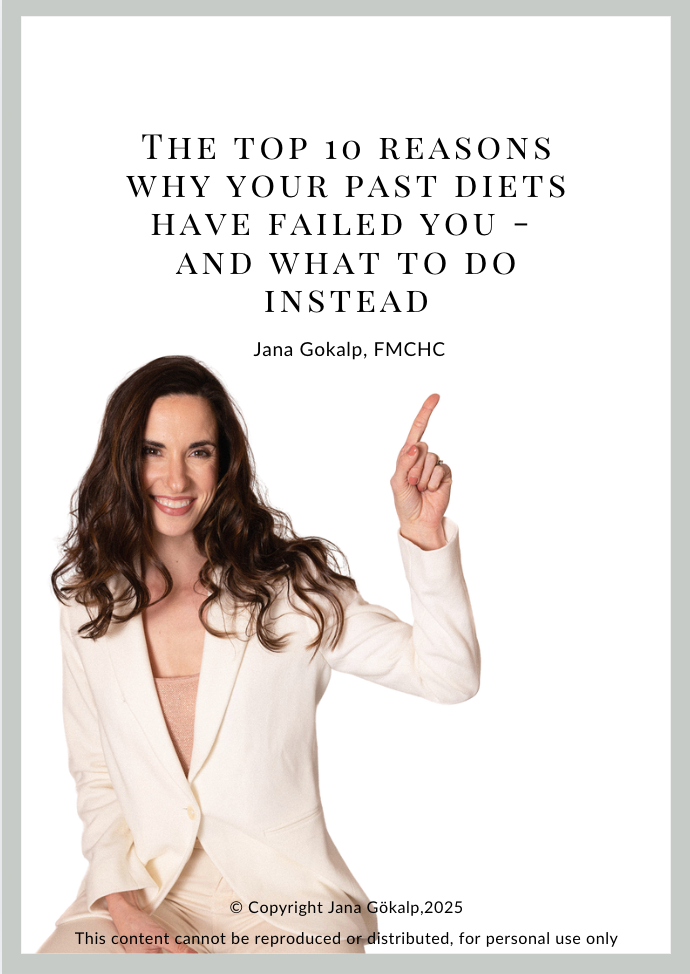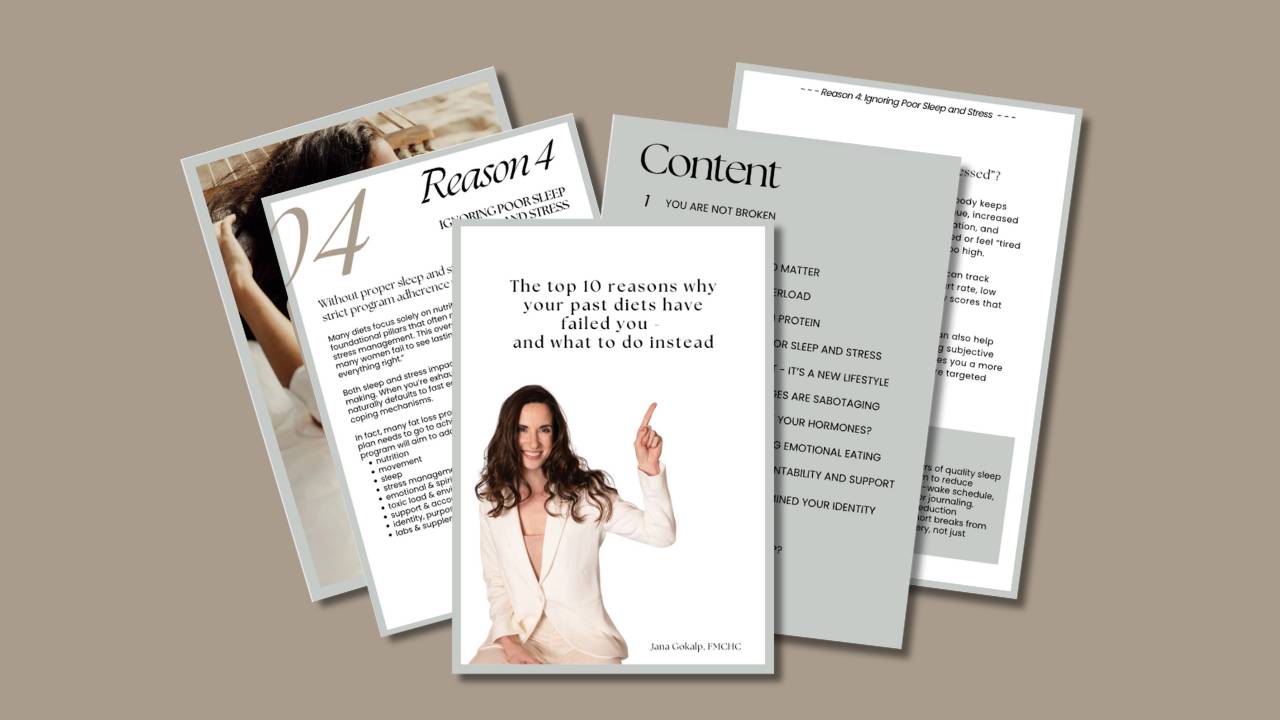The Secret to Lasting Weight Loss: Embracing Natural Eating

In a world saturated with diet trends and quick fixes, the journey to lasting weight loss often feels like navigating a maze. Yet, the true path to sustainable health lies not in restrictive regimens but in embracing natural eating, a harmonious relationship with food that honours both body and mind.
Wisdom From These Experts
In this post, I'm drawing from the wisdom of two thought leaders whose work has deeply shaped the way I coach and live: Marc David of the Institute for the Psychology of Eating and Dr. Amanda Hanson, psychologist and founder of Midlife Muse.
Marc brings unmatched insight into how our thoughts, emotions, and beliefs impact eating behaviours. His mind-body approach to nutrition reveals why sustainable weight loss is more about psychology than willpower. Dr. Amanda Hanson offers a powerful lens on emotional healing and feminine self-leadership. Her work uncovers how suppressed emotions and unmet needs often drive behaviour - including eating patterns. Together, their perspectives form a compassionate and empowering framework that moves beyond diets and into true transformation.
Understanding Natural Eating
Natural eating is about tuning into your body's innate hunger and satiety cues, choosing nourishing foods, and releasing the guilt often associated with eating. It's a practice rooted in self-awareness and self-compassion, steering away from external rules and toward internal wisdom. Rather than adhering to rigid diet plans, natural eating encourages curiosity, mindfulness, and emotional presence.
Why We Eat Emotionally (And Why That’s Okay)
Emotional eating gets a bad rap, but let’s be honest: it’s part of being human. Food is comfort, celebration, reward, distraction, and tradition. We turn to it when we’re stressed, angry, lonely, or bored - and also when we’re joyful, nostalgic, or proud. Eating is deeply emotional, and that’s not inherently a problem.
According to Marc David, founder of the Institute for the Psychology of Eating, food can serve as a symbolic bridge between our internal needs and external behaviours. We eat to feel better - and often, it works. The challenge begins when food becomes our primary or only coping tool, leading to patterns of overeating, guilt, and disconnection from the body.
Dr. Amanda Hanson adds that many women are conditioned to suppress emotion and "hold it all together," especially during midlife. Emotional instability or reactivity is often seen as weakness, so we internalise pain, fear, and exhaustion - and self-soothe in quiet, culturally acceptable ways. Enter: emotional eating.
She teaches that healing begins not with restriction but with awareness. You can’t change what you’re not willing to see. By naming your emotions and understanding what you're really hungry for, you reclaim your power and begin to heal the deeper root cause of the behaviour.
Tools to Bring Awareness and Intention to Eating
Awareness is the first step to change. Here are some practical ways to eat more consciously and address emotional patterns:
1. Morning Journaling to Set Intentions
Start your day with a few quiet minutes of journaling to set the tone for how you want to eat and feel. Ask yourself: "How do I want to nourish my body today?" or "What emotions might come up and how can I care for them without food?" This simple ritual helps bring clarity and intention before any meals even begin.
2. Use a Hunger Scale
Rate your hunger from 1 (starving) to 10 (stuffed). Aim to begin eating around a 3 or 4 and stop around a 6 or 7. This builds body awareness without judgment.
3. Accountability & Support
Talk to a coach, therapist, or trusted friend about your eating habits. Sharing your experience creates space for reflection, feedback, and healing.
4. Pause Practices
Before eating, take three deep breaths, express gratitude, or simply notice how you feel. This small pause can shift you from autopilot to intention.
5. Emotional Check-Ins
Build a habit of identifying and naming your emotions throughout the day, not just around food. Emotional literacy strengthens your ability to respond rather than react.
Addressing the Root Cause
To create lasting change, we must ask: What is the unmet need behind the urge to eat? Is it comfort? Safety? Connection? Validation?
Dr. Amanda Hanson teaches that true emotional freedom comes from learning to meet your needs directly rather than numbing them. She encourages women to cultivate internal stability by reconnecting with their values, their voice, and their truth. When you begin to validate yourself, set boundaries, and express your needs, the pull toward emotional eating often softens.
This deeper emotional work isn’t about willpower - it’s about healing. And healing doesn’t happen through food rules; it happens through presence, patience, and self-trust.
Final Thoughts
Embracing natural eating is not just a dietary choice; it's a lifestyle shift toward self-awareness, compassion, and aligned living. Food can absolutely be joyful, emotional, and satisfying, but it doesn't have to be your only source of comfort.
When you start to eat with intention and meet your emotional needs more directly, weight loss becomes a side effect of healing, not a war you have to win.
References
-
Dallman, M. F., Pecoraro, N., & la Fleur, S. E. (2005). "Chronic stress and comfort foods: Self-medication and abdominal obesity." Brain, Behavior, and Immunity, 19(4), 275-280. https://www.ncbi.nlm.nih.gov/pmc/articles/PMC3079864/
-
Institute for the Psychology of Eating. (n.d.). About Marc David & The Institute for the Psychology of Eating. Retrieved from https://psychologyofeating.com/about/
-
Hanson, A. (n.d.). Home - Midlife Muse. Retrieved from https://www.amandahanson.com/
-
Ruffault, A., Czernichow, S., Hagger, M. S., Ferrand, M., Erichot, N., Carette, C., Boujut, E., & Flahault, C. (2017). "The effects of mindfulness training on weight-loss and health-related behaviours in adults with overweight and obesity: A systematic review and meta-analysis." Obesity Research & Clinical Practice, 11(5 Suppl 1), 90-111. https://pubmed.ncbi.nlm.nih.gov/25490697/
-
van Strien, T., & Koenders, P. G. (2012). "How do I respond to the feelings that I eat? The association between emotional eating and overweight/obesity." Appetite, 59(2), 225-230. https://pubmed.ncbi.nlm.nih.gov/36904172/
-
Morillo-Sarto, H., Barceló-Soler, A., Herrera-Mercadal, P., Pantilie, B., Navarro-Gil, M., García-Campayo, J., & Montero-Marín, J. (2023). "'Mindful eating' for reducing emotional eating in patients with overweight or obesity in primary care settings: A randomized controlled trial." European Eating Disorders Review, 31(2), 303-319. https://pubmed.ncbi.nlm.nih.gov/36397211/
Fat loss is possible - especially for you
I see you! Mayve you've lost many battles with food, you are frustrated and beat yourself up every time you fall of "the plan". You are not alone! There is another way to approach weight loss: it's holistic, it goes deep, it changes your life. Are you ready?
Bringing Real Talk on Holistic Weight Loss to You
Forget the spam - I am bringing you the real deal. Scientific reviews on weight loss, smart tools to stay on track and motivational energy to reclaim "you".
No BS, no spam. I'll never sell your information, for any reason.






